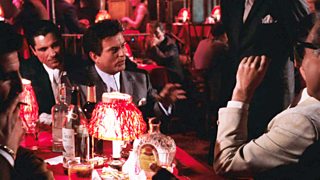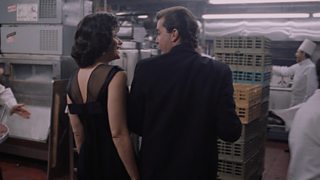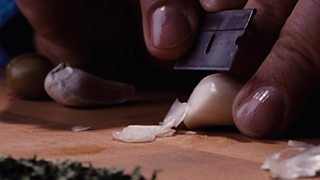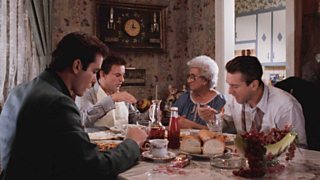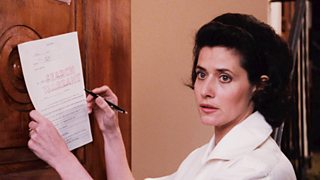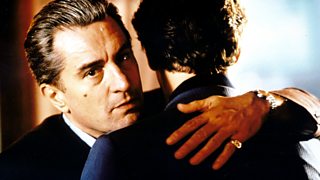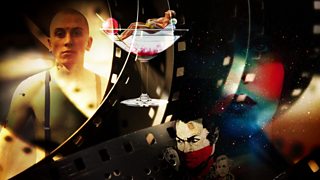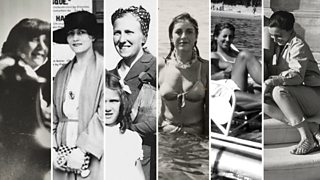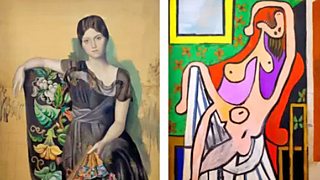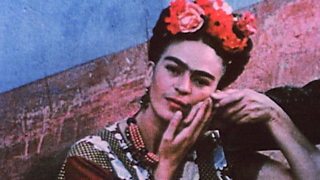The real-life Wiseguy behind Scorsese's GoodFellas
20 January 2017
When Martin Scorsese read Nicholas Pileggi's gripping true story of small-time Mafioso Henry Hill he knew he’d hit movie gold. The result was GoodFellas. With the film's BFI re-release, WILLIAM COOK finds out what happened when Marty met Nick and Henry.
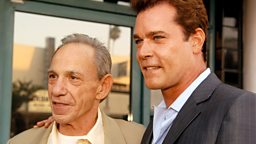
Twenty seven years since it burst onto the big screen, in a blaze of violent beauty, Martin Scorsese’s GoodFellas is rightly regarded as one of the greatest gangster movies ever made. And now this dark, delicious drama is back in cinemas nationwide, in a new 4k restoration, as part of the BFI’s Scorsese season.
Martin Scorsese turned the biography of a New York hoodlum, Henry Hill, into a cinematic masterpiece. But what about the man who wrote the book? I spoke to Italian-American author Nicholas Pileggi, who wrote Wiseguy, the bestseller which inspired GoodFellas. Scorsese read Pileggi’s book, and loved it, and invited Pileggi to co-write the screenplay. Pileggi’s recollections form a fascinating backdrop to Scorsese’s film.

Martin Scorsese turned the biography of a New York hoodlum, Henry Hill, into a cinematic masterpiece
"I was a journalist since I was young," says Pileggi. "Right out of college, I went to work at the Associated Press in New York City, in the mid Fifties. I was assigned to cover crime – I covered the police, I covered corruption. That period, in the 1950s and 1960s, was also the period that began to expose Organised Crime, as we came to know it."
Nobody had written much about Organised Crime before. The subject became Pileggi’s speciality, and when the publishers Simon & Schuster bought the rights to Henry Hill’s life story, Pileggi was a natural choice to write it.
For anyone who hasn’t seen GoodFellas (or read Wiseguy), Hill was an Irish-Italian New Yorker who became a small-time gangster as a teenager, and grew up to become involved in many of the Mob’s illegal enterprises.
When he was arrested for a range of offences, including drug-dealing (which his Mob bosses had told him to stay away from), he agreed to testify against his fellow ‘wiseguys’ and was given a new identity, under the US government’s Witness Protection Program. This was where Pileggi came in.
Hill was no Godfather, but he’d spent his whole life in the Mafia. For Pileggi, this was a big attraction. "I thought, 'It’d be great to do a story from the point of view of a middle level guy, or even a low level guy.’"
Pileggi spent several years with Hill, and the result was Wiseguy. "I tried to get behind the traditional Cops & Robbers kind of story." This was what Scorsese liked so much. "I’ve been looking for this book for years," he told Pileggi.
Classic moments from GoodFellas
Pileggi was thrilled. "I can’t think of anyone I’d rather have direct it," he said. He was even happier when Scorsese asked him to co-write the screenplay. Pileggi had never written a screenplay before, but they made a perfect team. Pileggi had a playwright’s ear for dialogue, and Scorsese had a cinematic mindset, an innate sense of how each scene should play.
Marty knows it, Marty grew up with it, Marty lived it. I had the same experienceNicholas Pileggi
"He was visualising the movie, where the camera would be, what he would be focusing on, while we were writing the script. He already sees the movie in his head."
Wiseguy reads so well because Pileggi knew the world he wrote about. And GoodFellas plays so well because Scorsese knew that world too.
"He grew up with those people - he knows the culture better than any other movie director out there," says Pileggi. "Marty knows it, Marty grew up with it, Marty lived it. I had the same experience - I knew those people, so there was an intimacy with that material that gave Marty tremendous freedom."
So what sort of man was Henry Hill? "He was a hustler. He wasn’t a mean man, he wasn’t a violent man – not that he wouldn’t commit violence – but he was hyperactive, and always into mischief." He was also very clever, with a genius for thinking up moneymaking scams.
"That’s why the really tough guys went along with him – he was always looking to make money for them." What made Wiseguy such a thrilling read was Hill’s incredible memory. He was a natural storyteller, with a novelistic eye for detail.
It was these details which lit up Pileggi’s book, and Scorsese’s movie. Like all movies, GoodFellas employs a good deal of artistic licence - but the most theatrical elements in the film are all things that really happened to Henry Hill.
Pileggi warmed to Hill. "He was always funny – he was charming." But not everyone saw his better side. Hill and Pileggi were driving together one day when they stopped off at a roadside restaurant. Pileggi went into the men’s room, and left Hill talking to the Maitre D'.
Ray Liotta nailed him. He had that charm, he was good-looking, and people just liked himNicholas Pileggi
When Pileggi came out of the men’s room, Hill said, "Come on, let’s get out of here!" Straight away, Pileggi saw why Hill was so keen to leave. "I looked over and I realised Henry had hit the Maitre D' in the head with a wine bottle. The guy was bleeding." "What happened?" asked Pileggi, as they drove away. "The guy gave me some lip," said Hill, by way of explanation.
Pileggi assumed they’d be arrested. He assumed wrong. "Not a thing happened! Nothing ever came of it!" For Hill, this was normal. Clearly, there was something about him which made the Maitre D' decide it’d be best to let the matter drop.
Hill didn’t feel sorry about the crimes he’d committed, so much as the high life he’d left behind. "He was grieving for the life he’d lost – he loved being a gangster," says Pileggi. "He loved being with those guys. They were his family." This was his main source of regret. "He felt awful because he had to give up the life he really wanted to live. He could no longer be a gangster."
For Pileggi, the portrayal of Hill in GoodFellas felt entirely authentic. "Ray Liotta nailed him. He had that charm, he was good-looking, and people just liked him. He wasn’t cold. He didn’t come on like a tough guy."
Hill died in 2012. He never read Pileggi’s book. "I don’t have to read it," he told Pileggi. "I told you everything that’s in it – what am I going to read it for?"
Remastered in 4K and reissued as part of the BFI’s Martin Scorsese season, GoodFellas is playing at selected cinemas across the UK from 20 January 2017.
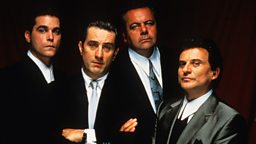
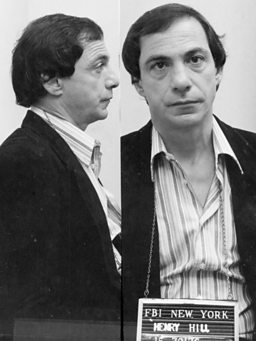
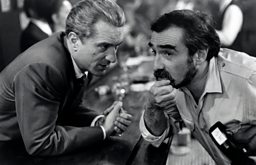
Trailer: GoodFellas re-release
GoodFellas trailer courtesy BFI/Warner Bros. Pictures.
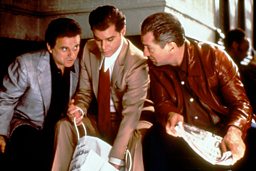
More cinema from the BBC
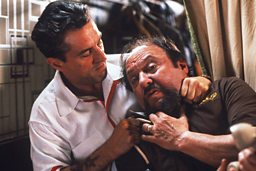
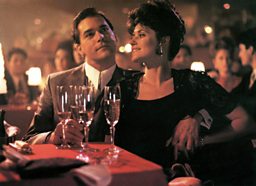
More from BBC Arts
-
![]()
Picasso’s ex-factor
Who are the six women who shaped his life and work?
-
![]()
Quiz: Picasso or pixel?
Can you separate the AI fakes from genuine paintings by Pablo Picasso?
-
![]()
Frida: Fiery, fierce and passionate
The extraordinary life of Mexican artist Frida Kahlo, in her own words
-
![]()
Proms 2023: The best bits
From Yuja Wang to Northern Soul, handpicked stand-out moments from this year's Proms
